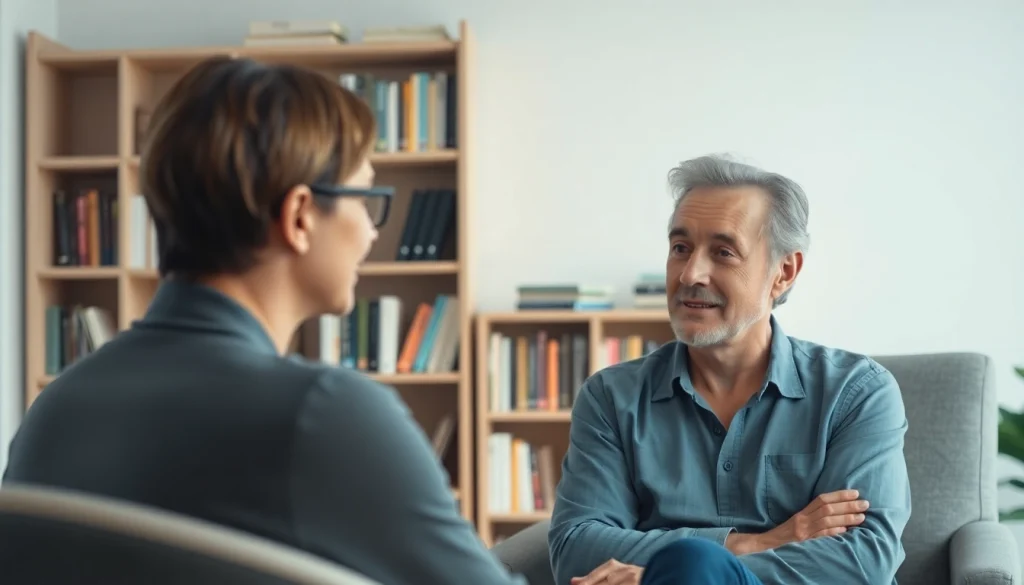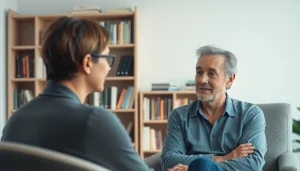Understanding the Role of an Attachment Theory Specialist in Emotional Healing

What is Attachment Theory?
Overview of Attachment Theory
Attachment theory is a psychological framework that sheds light on the emotional bonds between individuals, particularly between children and their caregivers. Developed by psychologist John Bowlby, the theory posits that the nature of these early relationships shapes an individual’s behavior in future interpersonal relationships. Bowlby conducted extensive research, revealing that children who develop secure attachments tend to show better emotional regulation and socialization skills, while those with insecure attachments may struggle with anxiety, aggression, and issues relating to trust.
Key Principles of Attachment Theory
The key principles of attachment theory center around the idea that bodily security and emotional comfort provided by caregivers are critical for childhood development. In this framework, the term “attachment” refers to the specific emotional ties formed between a child and a primary caregiver. The theory delineates four primary attachment styles: secure, anxious, avoidant, and disorganized. Each style manifests distinct behaviors and coping mechanisms, influencing how individuals relate to others throughout their lives.
Importance of Attachment Styles
Attachment styles serve as the blueprint for interpersonal relationships. A secure attachment fosters trust, intimacy, and the ability to communicate effectively. Conversely, individuals with anxious or avoidant attachments may grapple with intimacy issues or heightened levels of anxiety in relationships. Understanding these styles can lead to better self-awareness and improved relationships, making it essential to work with a trained attachment theory specialist for guidance.
Who is an Attachment Theory Specialist?
Qualifications and Training
An attachment theory specialist is typically a mental health professional, such as a psychologist, therapist, or counselor, who has undergone specific training in attachment theory and its applications. Qualifications may include a master’s or doctoral degree in psychology, social work, or a related field, along with specialized certification in attachment-focused therapies. Such credentials indicate a comprehensive understanding of the theory and its implications in therapeutic practice.
Essential Skills of an Attachment Theory Specialist
Specialists in attachment theory must possess a variety of skills to effectively support their clients. These include:
- Empathy: The ability to understand and resonate with clients’ emotional experiences is fundamental.
- Active Listening: Listening attentively allows specialists to gauge clients’ needs and responses accurately.
- Knowledge of Therapeutic Techniques: Proficient in diverse methodologies, such as Emotionally Focused Therapy (EFT) and Attachment-Based Therapy (ABT).
- Assessment Skills: Capable of evaluating attachment styles and emotional patterns to tailor interventions appropriately.
- Communication Skills: Ability to convey concepts clearly, ensuring clients understand their emotional processes.
Common Practices in Therapy
Attachment theory specialists utilize a variety of therapeutic interventions aimed at addressing attachment-related issues. Common practices include:
- Individual Therapy: One-on-one sessions focusing on personal attachment styles and their impact on relationships.
- Couples Therapy: Helping partners understand and improve their relational dynamics through the lens of attachment.
- Family Therapy: Addressing attachment patterns within family units to enhance communication and emotional safety.
- Workshops and Group Therapy: Facilitating discussions and activities that promote understanding of attachment theory in real-life situations.
Benefits of Working with an Attachment Theory Specialist
Healing Emotional Wounds
One of the primary benefits of collaborating with a specialist is the potential for healing deep-seated emotional wounds. Understanding the roots of attachment issues can help individuals process their feelings more effectively, leading to improved emotional health and resilience. Therapy sessions often provide a safe space to explore past traumas and their impacts on current behaviors.
Improving Relationships
Attachment theory specialists work diligently to help individuals and couples recognize the patterns that shape their interpersonal dynamics. By identifying maladaptive behaviors tied to attachment styles, clients can learn healthier ways to interact with others, fostering stronger and more fulfilling relationships.
Building Secure Attachments
Through intervention and education, attachment theory specialists can assist clients in developing more secure attachments, whether in romantic partnerships or friendships. This shift promotes trust, intimacy, and emotional safety, allowing for a more authentic and fulfilling social life.
How to Choose the Right Attachment Theory Specialist
Evaluating Credentials and Experience
When searching for an appropriate attachment theory specialist, it’s crucial to evaluate their education, certifications, and overall experience in the field. Look for professionals who have undergone specialized training in attachment-related therapies and possess a track record of successful client outcomes.
Understanding Treatment Approaches
Different specialists may adopt varying therapeutic modalities based on attachment theory. It’s beneficial for prospective clients to discuss and understand the specialist’s approach to therapy, ensuring it aligns with personal beliefs and needs. Some specialists might focus on experiential methods, whereas others may employ cognitive behavioral techniques.
Finding a Specialist Near You
Finding a qualified attachment theory specialist can be facilitated through online directories, recommendations from professionals, or community resources. Engaging with professionals who underscore the importance of attachment in therapeutic settings is vital for personal growth and emotional development.
Resources for Further Understanding Attachment Theory
Books and Publications
Numerous books and academic publications delve into attachment theory and its applications. Key texts include “Attached” by Amir Levine and Rachel Heller, which provides an accessible overview of attachment styles, and “The Attachment Theory Workbook” by Susan M. Johnson, which offers practical exercises and insights for deeper understanding.
Online Courses and Webinars
Various online platforms offer courses and webinars centered on attachment theory, allowing individuals to learn from professionals in the field. These learning opportunities often include expert-led sessions, interactive discussions, and supplementary resources for further exploration.
Support Groups and Communities
Support groups can provide communal healing and insights into attachment-related struggles. Local or online groups focused on attachment theory may offer emotional support and shared learning, enriching the healing journey.







